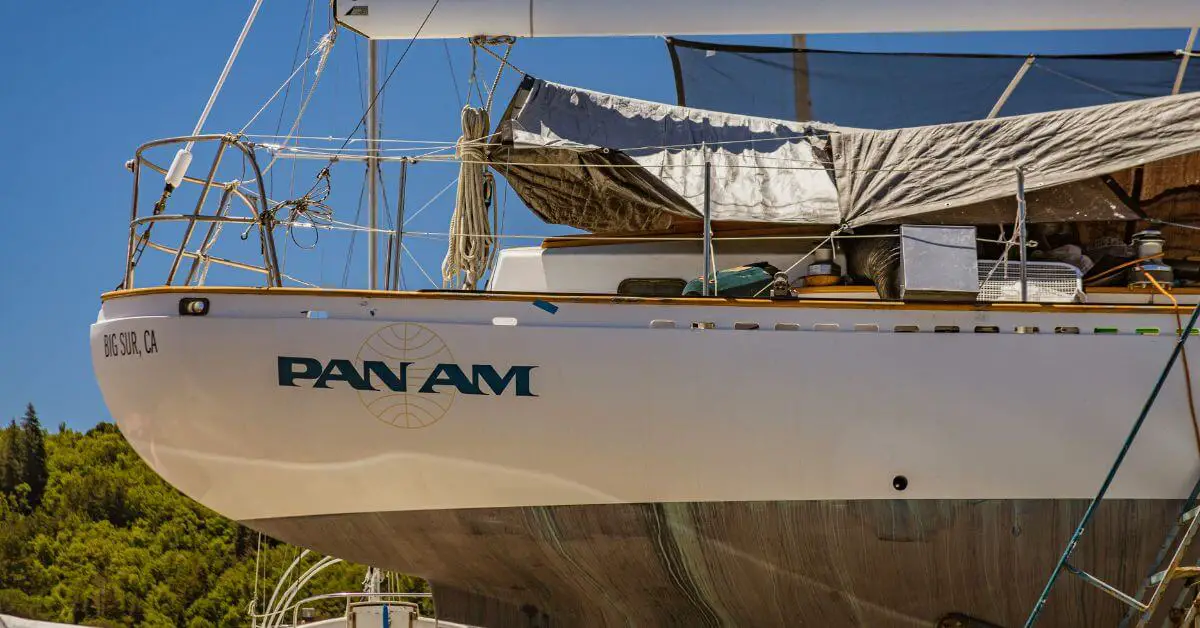Naming a boat is an important and personal decision every boat owner must make. Whether you have just purchased a new boat or want to rename an existing one, choosing the right name can bring your vessel personality, identity, and a sense of pride. In this comprehensive guide, we will explore the various factors to consider when naming a boat and provide valuable tips to help you find the perfect moniker for your beloved watercraft.
The Importance of a Boat Name
The boat’s name holds significant importance for several reasons.
1. Identification and Ownership
When a boat is named, it is a unique identifier. This is essential for legal purposes, allowing authorities and other boaters to identify and communicate with the vessel. The boat name also symbolizes ownership, signifying that the boat belongs to a particular individual or group.
2. Tradition and Culture
Boat naming traditions have been passed down for centuries and are deeply rooted in maritime culture. Naming a boat is a way to pay homage to historical and cultural significance, connecting the present vessel to the rich seafaring history.
3. Emotional Connection
For many boat owners, their vessel is more than just a means of transportation. It holds sentimental value and becomes a part of their identity. Naming a boat allows owners to establish a personal connection and develop a sense of pride and attachment to their vessel.
4. Superstition and Protection
Naming a boat can also be influenced by superstitions and beliefs. Some boaters believe that a boat without a name is unlucky or will not receive the protection of the sea gods. By giving the boat a name, it is believed to be bestowed with good luck and protection during voyages.
5. Creativity and Individuality
Naming a boat allows boat owners to express their creativity and individuality. It allows one to choose a name that reflects their personality, interests, or aspirations. Boat names can range from humorous and clever to elegant and meaningful.
Factors to Consider When Naming Your New Boat
1. Personal Connection
The first factor to consider when naming your boat is your connection with it. Consider what the boat means to you—whether it’s a symbol of your love for the sea, a dedication to a loved one, or an expression of your sense of adventure. Understanding this connection will help you find a name that holds sentimental value and is meaningful to you.
2. Choose a Unique Name
It’s essential to choose a boat name that is unique and readily identifiable among the vast sea of vessels. You want a name that stands out and is not easily confused with other boats. To ensure your boat has a distinctive name, consider using wordplay, combining words, or creating a name with a personal touch.
Be creative and think outside the box; your boat deserves an extraordinary name that sets it apart from others.
3. Reflect the Boat’s Personality
Every boat has its distinct personality—whether it’s a luxurious yacht, a speedy powerboat, or a reliable fishing vessel. Consider your boat’s key characteristics and features and try to incorporate them into the name.
For example, if your boat boasts elegance and luxury, you might choose a sophisticated and refined name. On the other hand, if your boat is all about adventure and adrenaline, a more exhilarating and dynamic name may be fitting.
4. Be Mindful of Formality
When naming your boat, it is crucial to consider the occasion you will use the name. If you plan to participate in boating contests or other formal events, choose a dignified and respectful name. On the other hand, if your boat is primarily for leisure and relaxation, a more playful and lighthearted name would be suitable.
5. Practicality and Pronunciation
Choosing a boat name that is easy to pronounce and spell is essential. Remember, you’ll need to communicate your boat’s name over the radio or in person so that a simple name will ensure effective and accurate communication.
Additionally, ensure the name can be easily painted or applied to the boat’s hull and is legible from a distance. Practicality should not be overlooked when deciding on a boat name.
The Process of Naming Your Boat
After considering the abovementioned factors, it’s time to begin naming your boat. Here are some steps to help guide you through the process:
1. Brainstorming
Start by brainstorming a list of potential names. Write down any ideas that come to your mind, no matter how silly or bizarre they may seem. This creative exercise will help you explore different possibilities and stimulate your imagination.
2. Research
Once you have compiled a list of potential names, research to ensure they are not already used. You can search online databases, boat registration records, and boating forums to check for name availability.
3. Feedback
Seek feedback from friends, family, or fellow boating enthusiasts. They may provide valuable suggestions or help you narrow down your options by offering their opinions on your chosen names.
4. Test Run
Before finalizing the name, doing a test run is a good idea. Imagine introducing your boat using the chosen name or hailing it over the radio. Consider how it feels and sounds, ensuring it aligns with your vision for the boat.
5. Making it Official
Once you decide, it is time to make the name official. Check with your local maritime authority or boat registration agency for the necessary process to officially name your boat.
Dos and Don’ts of Boat Naming
Here are some dos and don’ts to consider when naming your boat:
Dos:
- Length: According to US Coast Guard regulations, the boat name must be no more than 33 characters long, including spaces and punctuation. This is so the name can be displayed on the boat’s transom. Letters for the boat’s name must be at least four inches in height and must be permanently affixed.
- Be Creative: Choose a boat name that reflects your personality, interests, or aspirations. Be creative and think outside the box to create a unique and memorable name.
- Consider Nautical Themes: Incorporate nautical or maritime elements into your boat name. You can use terms related to sailing, the sea, or marine life to give your boat a distinct identity.
- Keep it Simple: Opt for a boat name that is easy to pronounce and remember. A simple and straightforward name will simplify communication and identification on the water.
- Ensure Visibility: Consider the visibility of your boat name. It should be clear and easily readable from a distance. Choose contrasting colors and fonts that stand out against the background of your boat’s transom.
- Traditions and Customs: Some boat owners follow traditions when naming their boats, such as naming the boat after a woman or using a nautical-themed name. Some also incorporate personal interests, hobbies, or family members’ names.
- Uniqueness: Choosing a unique name for the boat to be easily identified and distinguished from other boats in the area is essential. Repeating boat names can cause confusion and communication problems on the water.
Don’ts:
- Avoiding Inappropriate or Offensive Names: It is best to avoid using names that contain obscene or offensive language. This is to show respect to other boaters and comply with Federal Communications Commission (FCC) and US Coast Guard regulations.
- Don’t Imitate Other Boat Names: Avoid duplicating or imitating the names of well-known boats. Choosing a unique name will help to set your boat apart and avoid confusion with other vessels.
- Avoid Trendy or Dated References: While using current trends or references in your boat name may be tempting, it’s essential to consider future relevance. Avoid using names that may quickly become outdated or lose meaning over time.
- Be Mindful of Abbreviations or Slang: Avoid using abbreviations or slang that other boaters may not universally understand. Choosing a name that is easily recognizable and doesn’t require explanation is best.
- Avoiding Distress Calls: It is essential to avoid naming your boat something that sounds like a distress signal (such as “mayday” or “SOS”), as it could lead to confusion and unnecessary emergency response.
- Traditions and Customs: Some boat owners follow traditions when naming their boats, such as naming the boat after a woman or using a nautical-themed name. Some also incorporate personal interests, hobbies, or family members’ names.
- Uniqueness: Choosing a unique name for the boat to be easily identified and distinguished from other boats in the area is essential. Repeating boat names can cause confusion and communication problems on the water.
Conclusion
Finding the perfect name for your boat is an exciting and personal endeavor that should not be taken lightly. By considering the personal connection, uniqueness, boat personality, formality, and practicality, you can give your boat a name that truly represents your watercraft and resonates with your spirit as a recreational boat owner.
Take your time, be creative, and enjoy the process of finding the perfect moniker for your vessel. Keep in mind that a boat’s name can evoke emotions, create memories, and become a symbol of your passion for the open waters. Happy naming and bon voyage!
Reference





